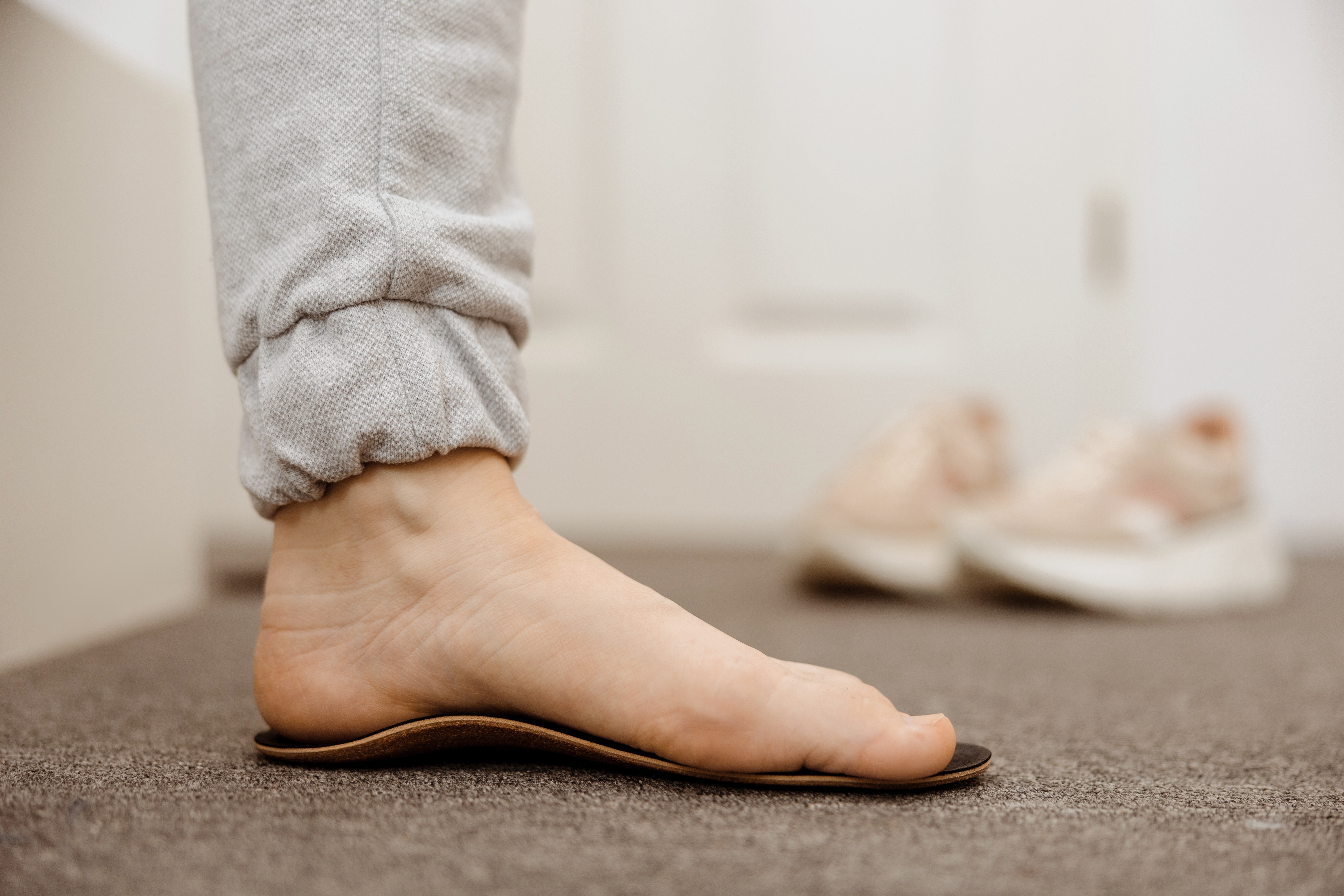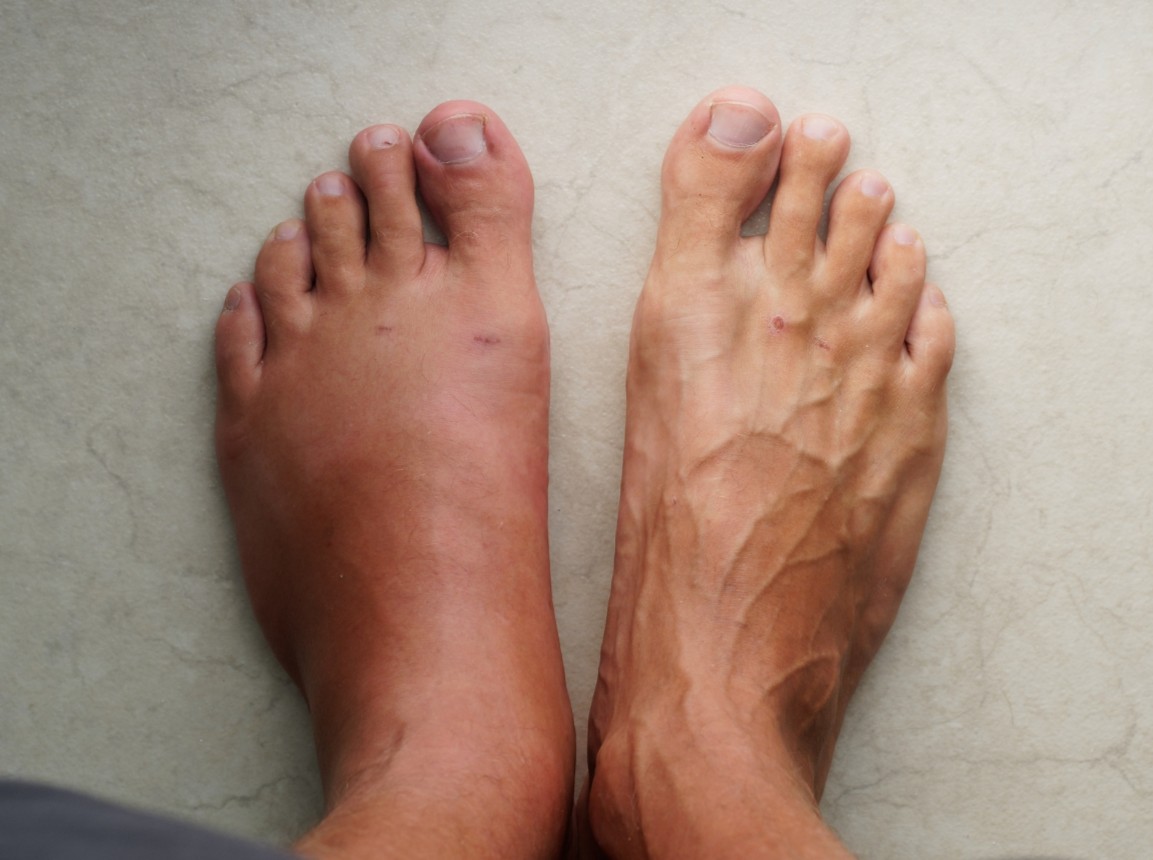

Orthotics are one of the most common treatment methods we use with foot pain and injury, due to the fantastic results we can achieve with them. If you’re not very familiar with orthotics, you may wonder how orthotics can help with so many problems – and how they work.
Today, we’re talking about a very important feature of orthotics – their ability to offload pressure. While orthotics have a myriad of other features that help them achieve their desired function (i.e. to help you recover from your injury and get pain-free), we’re going to start bringing you into the world of orthotics right here.
Before we start, we must emphasise this about our orthotics. The orthotics that we prescribe for you are custom-made for your feet, your pain, your injury, and the individual characteristics of your feet. These are not the one-size-fits-all silicon inserts you grab from the pharmacy in the hopes that you’ll feel more comfortable. Your orthotics are designed and made for you, using decades of knowledge and experience.
This is why an item that is under the broad term of ‘orthotic’ can achieve so many effects for many different people – every pair is different. Much like prescription glasses, they can help with many problems. Also, like prescription glasses, there’s a big difference between the ones you pick up at the supermarket, and the ones you get from your optometrist.
When we talk about ‘offloading pressure’, we mean removing the pressure that is being applied to an area of your foot that is causing you pain. For example, say that your big toe joint at the ball of your foot is swollen and painful. Anytime your foot hits the ground, that joint has pressure applied to it as you push against the ground and you feel pain. In fact, because the joint is swollen, it is probably taking on even more pressure than it was previously.
Off-loading would mean redistributing the pressure away from this big toe joint, and instead, spreading it evenly between the lesser joints of the ball of the foot. These non-painful joints then take on a little more pressure each, and the big toe joint is either partially or completely offloaded, letting it heal – while you experience significantly less pain with every step.
The real answer is – any way we design and prescribe it to! There are many offloading features that we can incorporate into an orthotic. Taking the example above, we can do a cut-out specifically beneath the big toe joint and the area of pain and swelling. This removes the pressure directly beneath it, using a cushioning top layer on the orthotic to redistribute that pressure over the lesser four toe joints, while helping them absorb some of that impact. This way, these joints will be the ones ‘pushing off’ the ground, instead of the big toe joint, letting it heal.
Taking a different condition as another example, let’s say that you have a neuroma. A neuroma presents as a painful, palpable, pebble-like mass that can develop between your metatarsals (the long bones of your feet). It’s actually the inflammation of the lining of one of your nerves. When you walk, and your metatarsal bones squeeze on the neuroma, you feel pain. We can place a dome-like addition into your orthotic, that sits just behind the position of the neuroma. This will raise the bones on either side of the neuroma, effectively increasing the space between the bones (so they don’t squeeze the neuroma), while removing excess pressure from it while you walk.
Well, truthfully – you don’t. There’s no one-size-fits-all, especially when you must consider how adding a certain feature to your orthotic will affect the other bones and joints in your feet, especially when you have other medical conditions and problems. But that’s where we come in! We perform a comprehensive assessment and get to know you and your history extensively before we prescribe your orthotics.
Then, we’ll design, create and fit your orthotics, monitoring you to ensure you are getting the results that we both want. If you need help with foot pain from an experienced podiatry team, book your appointment online here or call us on (09) 523 2333.

Valentine’s Day is about love, appreciation, and thoughtful gestures but let’s be honest, most gifts don’t last longer than a week. This year, choose something different. Choose a gift that offers comfort, confidence, and real care: a Medical Pedicure.

We’ve all had those days — you come home after hours on your feet, kick off your shoes, and notice your ankles look puffier than usual.
Swelling in the feet, ankles, or legs (known medically as edema) isn’t always a reason to panic. It can be as simple as a
salty lunch or a long flight.
But what if it’s happening more often — or seems to be getting worse? Swelling can sometimes be a sign of something more serious. Here’s
what could be going on and when to check in with your doctor.
Keeping your family on their feet and helping them to walk, run, play and exceed their goals is why we love getting up in the morning.
Ground Floor, One Health Building
122 Remuera Rd, Remuera
Auckland 1050, New Zealand
| MON - FRI | 7:30am – 6:30pm |
| SAT | 8:30am – 4:30pm |
| SUN | Some availability |
Make an Appointment
Online Schedule
Our virtual receptionist is available 24/7 to help with general questions, booking requests, and clinic information, even when our team is busy, or it's after hours.
Whether you're calling us or using our website, you'll get fast assistance any time of day. And if your query needs a personal touch, a member of our team will follow up as soon as possible.
If you’d like to see a podiatrist who speaks your preferred language, just give us a call and we’ll help you book.